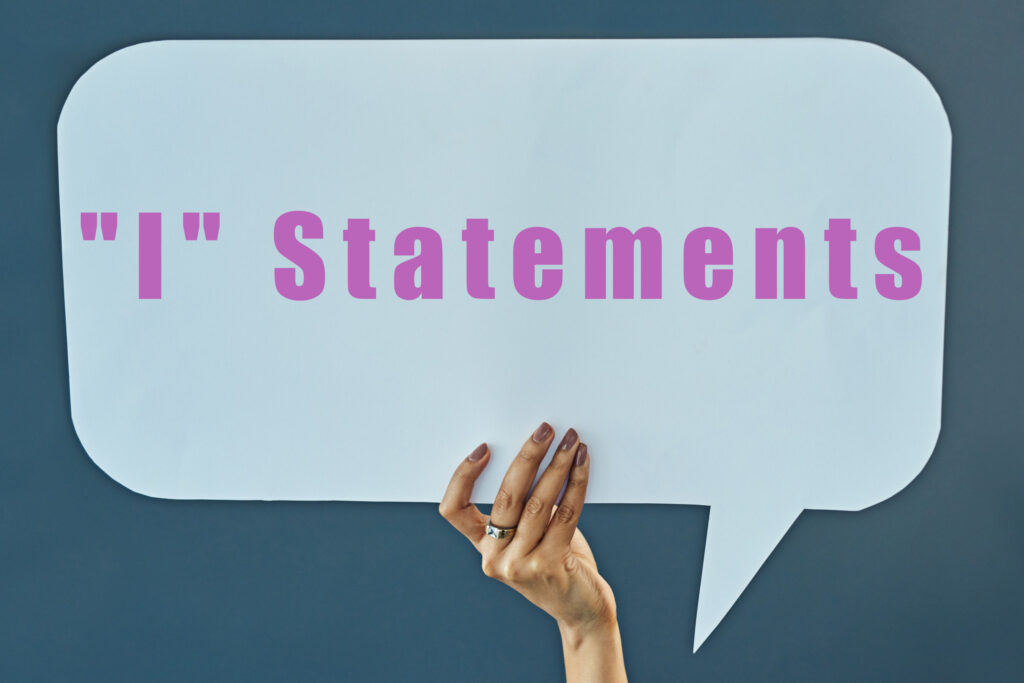Getting Away from Blaming Others

Communication Tip: Using “I” Statements
A lot of our conversations with others revolve around accountability. We can become very invested in who we think is right and who we think is wrong. Although most communication is never that simple, we all have times where we think someone else should be held accountable when bad things happen.
However, when people feel like they are being blamed, they can become very defensive. It’s tricky though, what if you think a person really is to blame for something? Then shouldn’t they step up and take the blame? Engaging in productive communication strategies such as “I” Statements can help – even if you don’t feel like you’re on the same page as the other person.
Blaming language consists most often of “You” language. So: “Why can’t you wash these dishes? You never do that and I’m so sick of it!” Now, this can be a frustrating place to find yourself. If your family member consistently doesn’t follow through on work around the house this can create a lot of resentment.
Even if you think another person is wrong, approaching stressful communication with “I” Statements may be a good resource for you. Incorporating them can help you take responsibility for your feelings while also describing a problem in a non-judgmental way. An example of how to approach the dirty dishes scenario using “I” Statements could be:
“I feel angry when I find dirty dishes in the sink. I’m overwhelmed and get tired.”
Tips to start using “I” Statements include:
“I” Statements also offer a good opportunity to discuss an action that can be taken to problem solve together. This can be done by adding a “Can we?” question to the end of the “I” Statement.
So if you’re angry at your roommate for not helping you clean your apartment before a party, one way to solve the problem together might be:
“I feel upset when I think of all the things we have to get done before the party. I’m overwhelmed and feel like I need more help. Can we meet up this afternoon and write down what each of us needs to do before the party?”
The hope is that by using “I” Statements you can share your feelings and expectations in a way that does not blame others. It is also important to realize that assertive communication skills also require the other person to listen to you and be respectful. Even if one person does not seem responsive when you use “I” Statements, don’t give up! They can still be a good investment in managing the anger and stress involved in communicating about difficult feelings or situations.
Empower Yourself to Thrive with Confidence
This emphasizes both self-empowerment and confidence in navigating life’s challenges.



